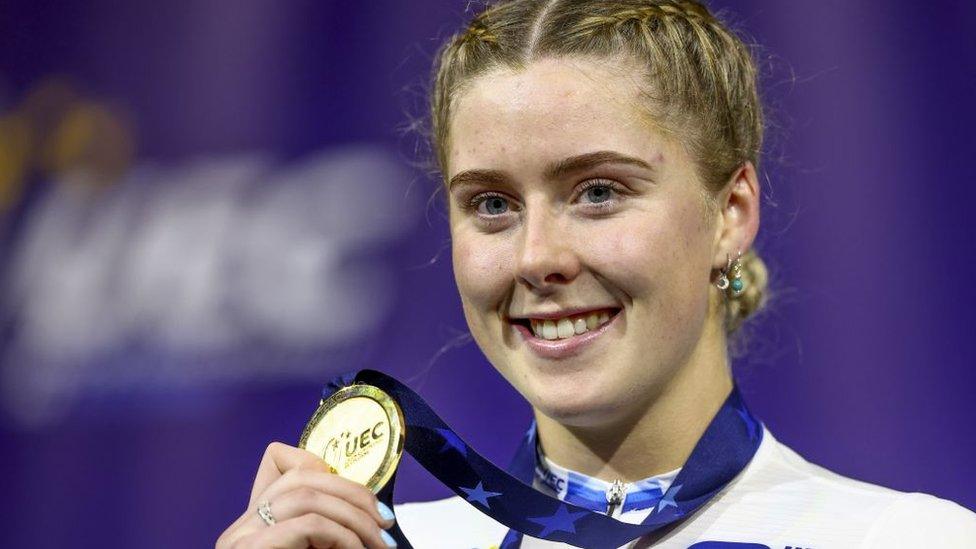Team GB climber calls for more diversity in sport
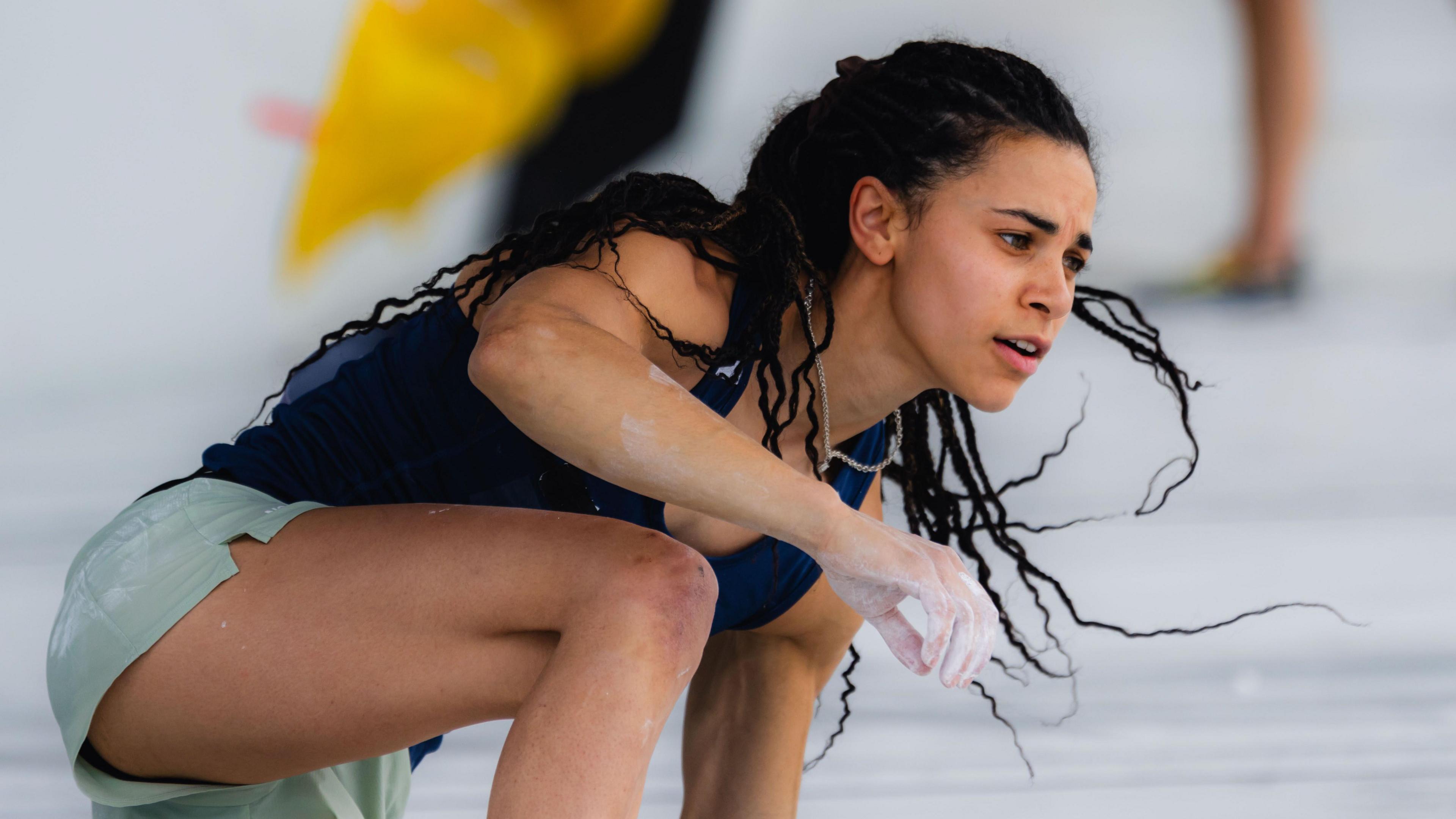
Molly Thompson-Smith will represent Team GB in climbing at the Paris Olympics in August
- Published
Walking into a climbing gym, Team GB's Molly Thompson-Smith says: "I'm often the only one who looks the way I do."
The 26-year-old has been selected for the Paris Olympics but it's not just medals she's aiming for - it's change too.
A 2021 study found that just 7% of people who take part in climbing are from non-white backgrounds, something Molly says she finds "shocking".
"One of my main motivations for competing at the Olympic Games is to be that role model, that athlete I wish I had when I was a kid," she tells BBC Newsbeat.
Molly will be joined in Team GB's climbing squad by fellow first-timers Erin McNeice, Toby Roberts and Hamish McArthur.
Climbing made its debut as an Olympic sport at the last Games in Tokyo which Molly narrowly missed out on qualifying for.
At the gym she trains at in Sheffield, Molly says making it to the Games has always been her dream.
"It's something I've been wishing for ever since I was a little girl," she says.
It was Molly's seventh birthday party where she first discovered her love for climbing.
"I was lucky enough to grow up in a very sporty household in London and my brother and I would choose a different sport for every birthday party to try," she says.
"I remember that party so well. I remember not really caring about how my friends were getting on and just having the best time, being that kid that was like, 'Me, me, me! I want to go next!'
"Pretty much from then on, I've never stopped climbing - I was hooked."
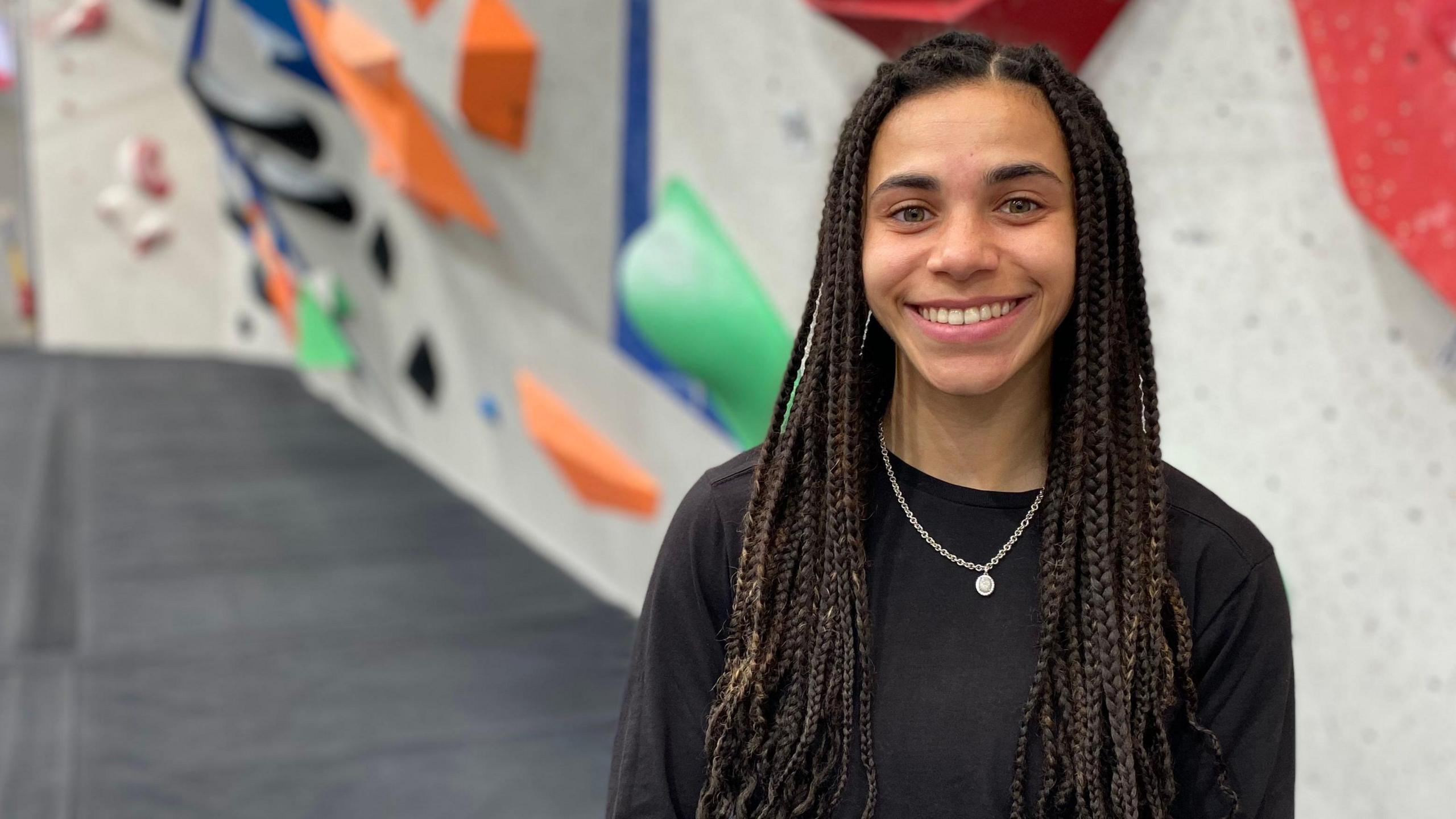
Molly trains in Sheffield and says she wants to encourage more diversity in the sport
In a sport that tests strength and endurance, Molly, who is mixed race, soon found she wasn't only being tested on the wall.
"I've definitely experienced racism and microaggressions within climbing," she says.
"I think it's important to be honest about my experiences because some people simply don't believe it."
At a World Cup event last summer, Molly says one of her teammates, who is also mixed race, was introduced under her name.
"For her to get to that point and then be introduced as the only other person of colour on the circuit because the commentator was too lazy... There's just no excuse, in my opinion.
"It was such a shame for her hard work to be undermined like that."
She also says she's experienced "overt racism" when competing abroad which she says has soured her success.
In 2021, Leeds Beckett University published a study, external which suggested people who take part in climbing overwhelmingly come from white backgrounds.
It found people from black, Asian and minority backgrounds only make up about 7% of participants in the sport.
"I'm always pretty shocked when I hear the stats about participation within climbing," says Molly.
But it doesn't come as a surprise to Rotimi Odukoya.
In 2019, he founded Climbxr in London with the mission of increasing diversity within climbing.
"When we initially started climbing, we went to a few climbing walls around London and some almost felt like they policed us," he says.
"Because they hadn't seen a group like us before. We were very unique in the climbing scene.
"You definitely do notice that we're pretty much the only black or underrepresented people in the room."
Rotimi thinks the cost of climbing could be holding some people from underrepresented communities back, so the group does what it can to offer reduced rates and discounted equipment.
But he says the main barrier to getting more people from minority backgrounds into climbing is the lack of representation.
"I definitely didn't see anyone who looked like me climbing on a wall," he says, adding that the sport rarely seems marketed towards black communities.
So for Molly to be representing the sport at the Olympics is "huge".
"It's going to have ripple effects of people that look like her wanting to pick up the sport because they identify with her," he says.
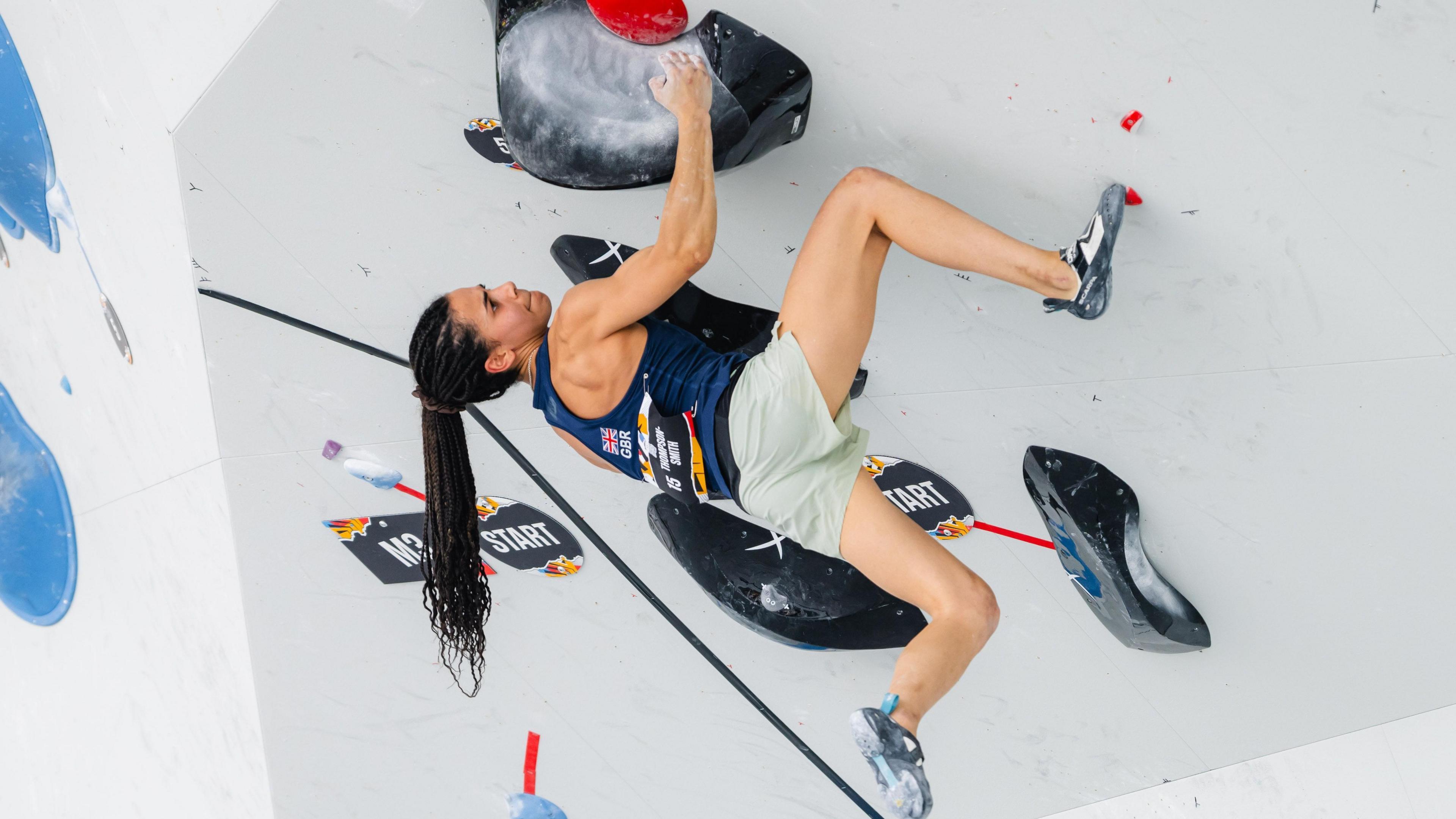
"Going to Paris means so much more than just my own personal performance," Molly says
In Paris, there will be three climbing disciplines across two medal events - speed and combined (bouldering and lead).
Bouldering involves scaling a 15ft (4.5m) wall without ropes and in the speed race, athletes go head to head racing up a 49ft (15m) wall in the shortest time possible.
But it's the lead event, where athletes climb a 15m-wall without having seen the route ahead of time, that Molly says is her speciality.
Qualifying for the Games has been "a long time coming", she says, and she's been training hard for this moment after a serious foot injury 18 months ago knocked her back.
Now she's made it, she's more determined to be a force for positive change when it comes to diversity in the sport.
"Going to Paris means so much more than just my own personal performance," Molly says.
"I really hope that I'm the athlete that a little girl or a little boy needs to see and can connect to."
In a statement, the BMC, which covers GB Climbing has told Newsbeat that it is "committed to inclusivity".
"We believe in the power of sport and activity to create social change, unite people and bring them together, to live healthier, happier, and more fulfilled lives."
They added there was "a long way to go".
"In acknowledgement of this we remain committed and are working hard to build inclusivity into each and every activity, event and project we create."

- Attribution
- Published27 June 2024
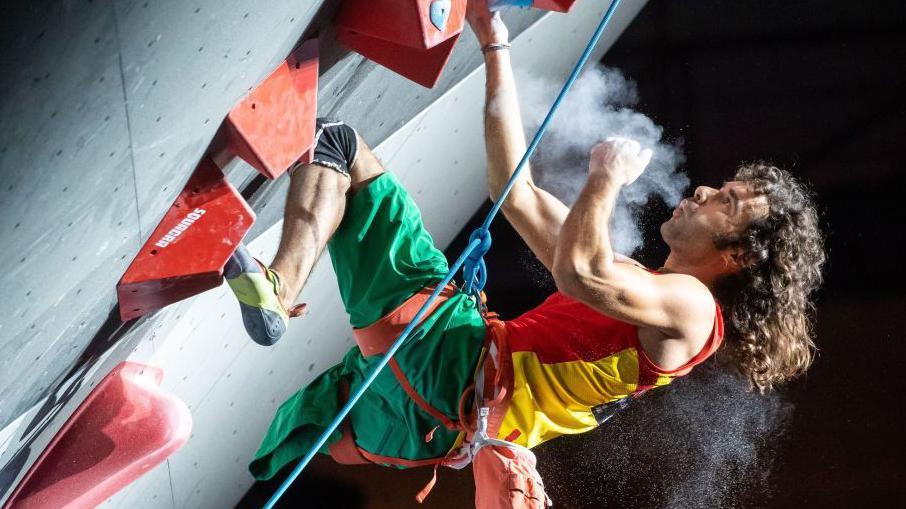
- Attribution
- Published3 April 2024
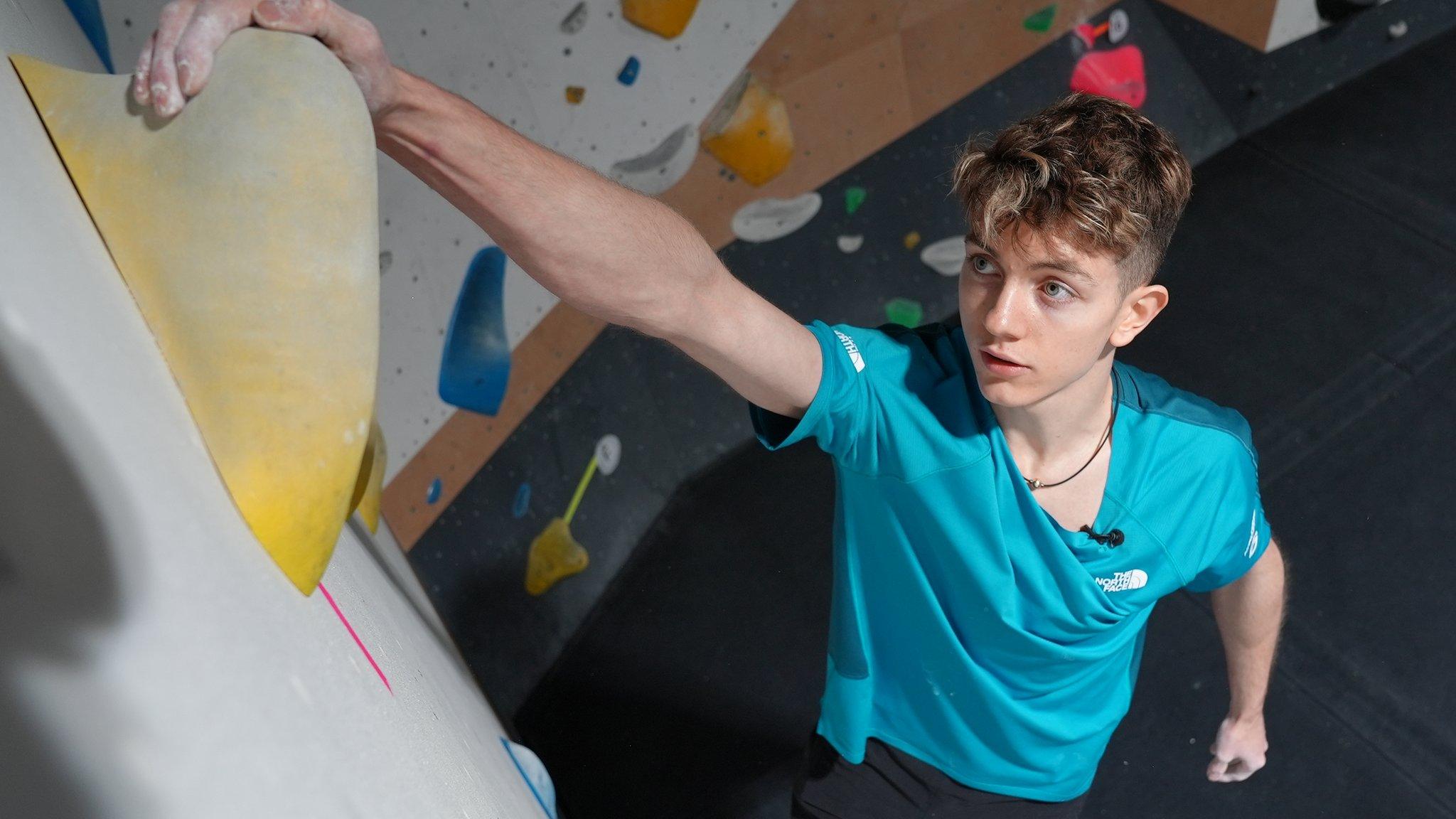
- Attribution
- Published9 June 2023
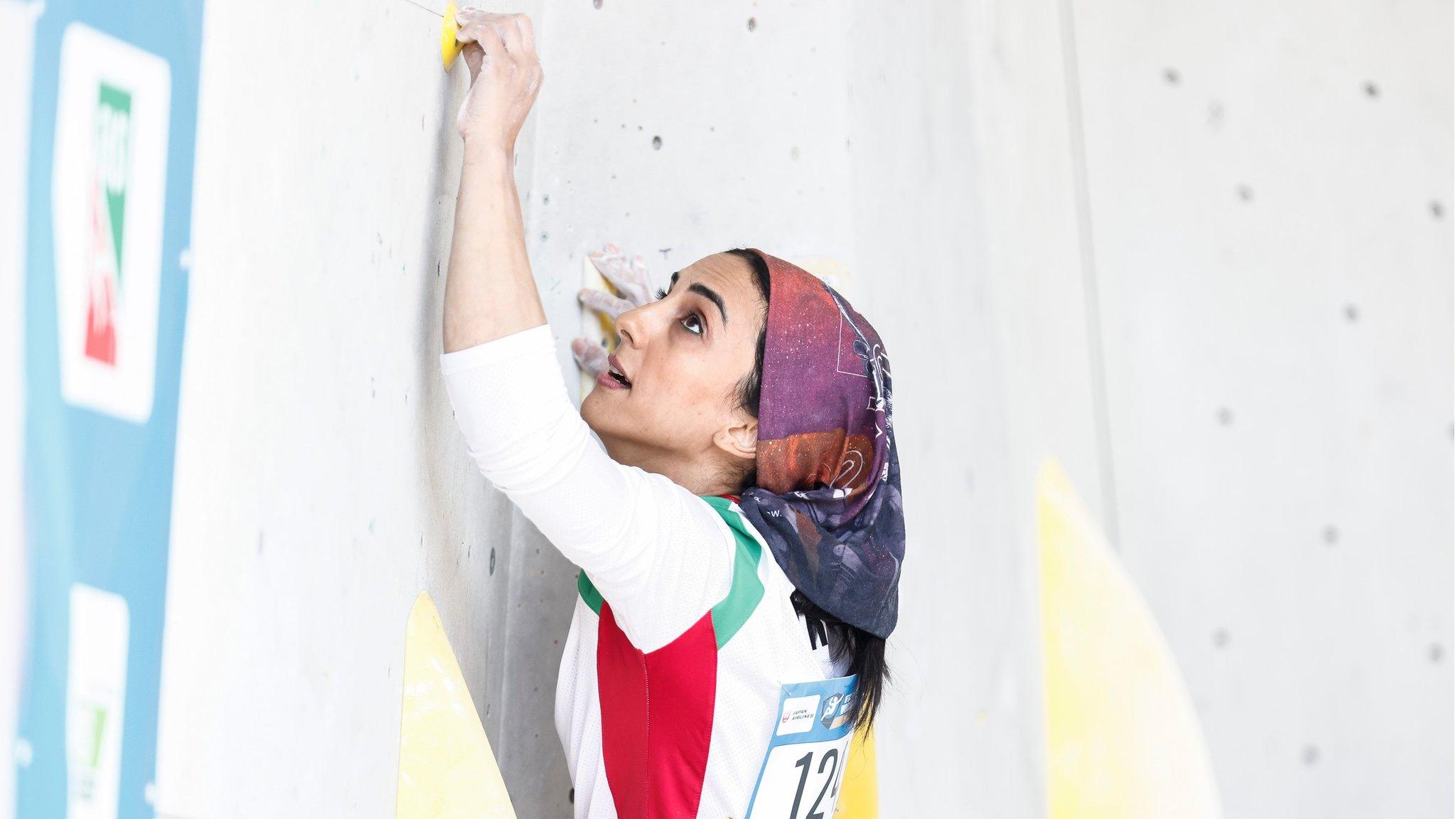
- Published11 April 2024
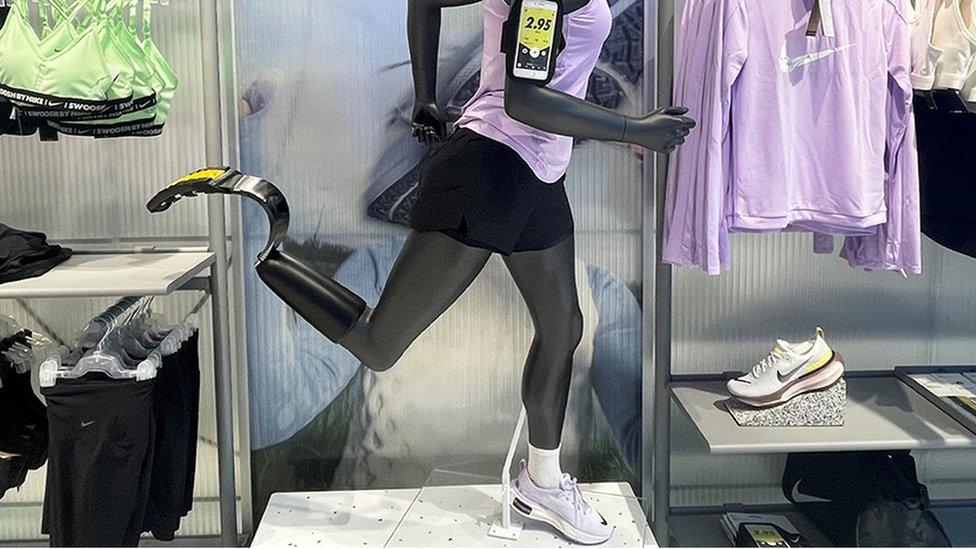
- Published14 February 2024
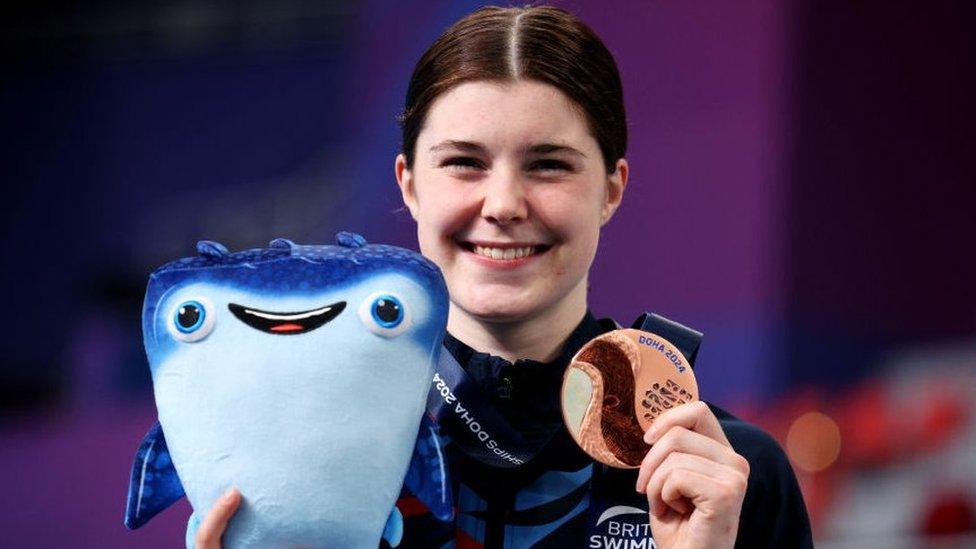
- Published23 February 2024
